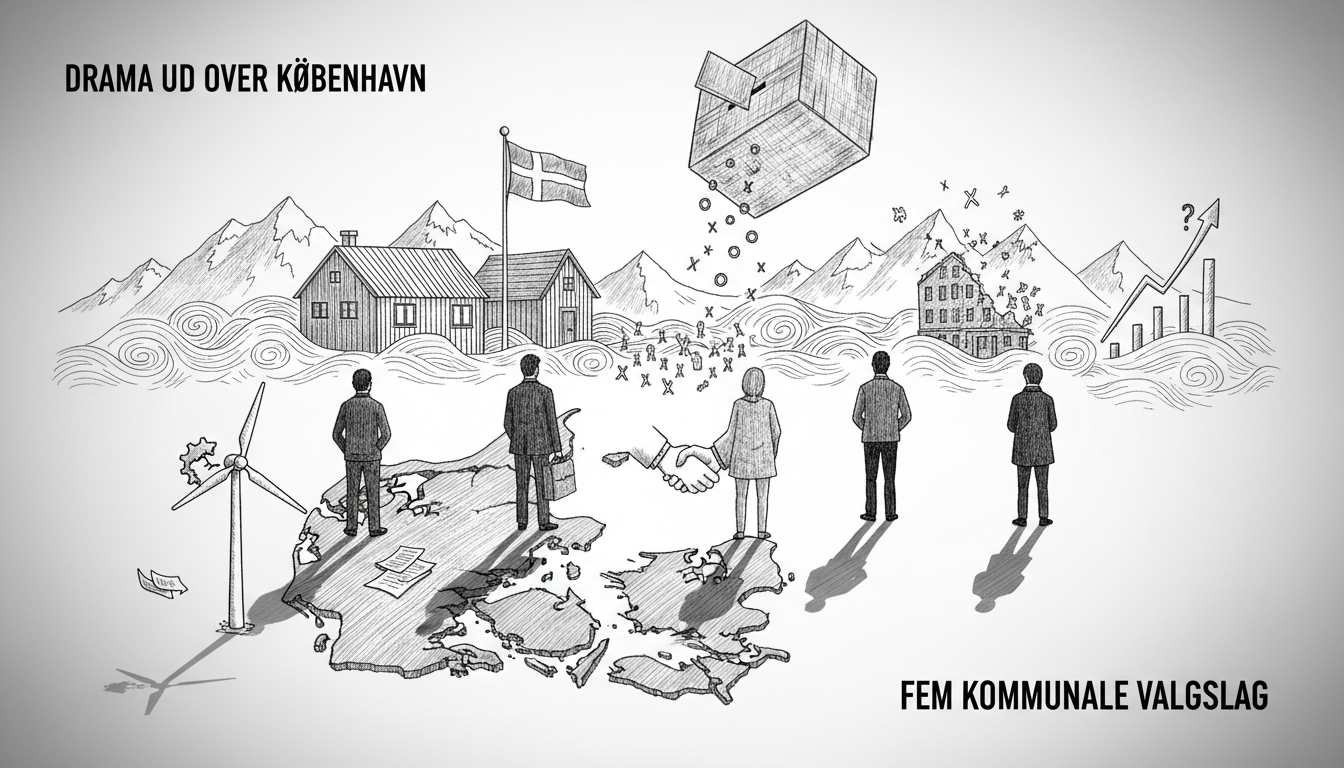While Copenhagen's mayoral race dominates headlines, five other Danish municipalities face equally dramatic elections. The Social Democrats fight to maintain power in several regions as new parties challenge established political forces.
Election researcher Kasper Møller Hansen from Copenhagen University said the political landscape has become increasingly unpredictable. "There will be major shakeups in several places. New parties have emerged, mandates have changed, and never before have so many voters switched parties," he explained.
Randers faces what analysts call a genuine election thriller. The municipal council in this central Jutland community is known for its poor working environment, and this election period proves no exception. One-quarter of the 31 council members changed parties during the term, and the Conservative People's Party lost all representation after all four members resigned.
The Nordic Waste contaminated soil landslide scandal brought additional negative attention, with the municipality receiving heavy criticism for its oversight failures. Political analyst Ask Rostrup described the situation as challenging. "Constituting a council with so many parties is like a sack of fleas. It gives candidates many options but creates uncertainty about political alliances," he said.
In Ringkøbing-Skjern, four parties compete for the mayor's position after the current Liberal mayor steps down. The municipality has been a Liberal stronghold since 2007, but the party suffered significant losses in the last election.
The Denmark Democrats' national parliament member Mads Fuglede enters as a mayoral candidate despite party leadership previously ruling out such positions. "It's not unthinkable that Denmark Democrats could secure a mayor position somewhere in the country," Rostrup noted. "Fuglede has the advantage of being more well-known than many others."
The Liberal Party responded by forming a surprising cooperation with the Social Democrats to protect their position. "This cooperation is as remarkable as when the SVM government formed," Rostrup observed. "It shows how much is at stake. The Liberals must win Ringkøbing-Skjern to avoid a major blow to their self-identity."
Tønder municipality witnessed one of the biggest election dramas in the last municipal election. The Liberals lost power after 14 years when they dropped sitting mayor Henrik Frandsen as their candidate. The decision proved costly as the party lost nine mandates while Frandsen stormed into the council with his new party, Tønder List, which became the largest council group.
The Schleswig Party ultimately secured the mayor position with candidate Jørgen Popp Petersen, whom the Liberals now try to unseat. Timing may favor the Liberals after recent revelations that Popp Petersen faced eight police reports concerning poor conditions in his pig farm.
"A case of this character will be discussed over dinner tables, particularly in an agricultural municipality like Tønder," Rostrup commented.
In Køge, the Social Democrats face significant challenges as their deputy leader Marie Stærke fights to retain the mayor position. Conservative parties have formed a historically large electoral alliance to secure a conservative mayor.
Losing both Køge and Copenhagen would signal deep crisis for the Social Democrats, according to analysts. Stærke also faces criticism regarding her relationship with the locally famous figure Køge-Calle, featured in a documentary.
Despite what Hansen calls "massive headwinds," the Social Democrats could still secure the mayor position if percentages remain favorable to the left-leaning parties.
Odsherred municipality presents another compelling race following one of the biggest municipal scandals of the election period—the district heating scandal. Faulty calculations in the heating system rollout created over one billion kroner in municipal utility debt and higher heating bills for residents.
Mayor Karina Vincentz Andersen, the country's only local list mayor elected in 2021 with her party New Odsherred, now fights to maintain power despite her husband's involvement in the scandal. Pressure increased recently when the municipal administration canceled all subscriptions to the local newspaper that had reported critically on municipal scandals.
The Social Democrats see an opportunity to regain the mayor position with newcomer John Larsen as their frontman. "His inexperience might indicate the Social Democrats struggled to find someone who could and would take the role," Rostrup noted. "They must work with what they have."
These municipal battles reveal deeper shifts in Danish politics as traditional party loyalties weaken and voters seek alternatives. The outcomes will shape local governance and send signals about national political trends.

